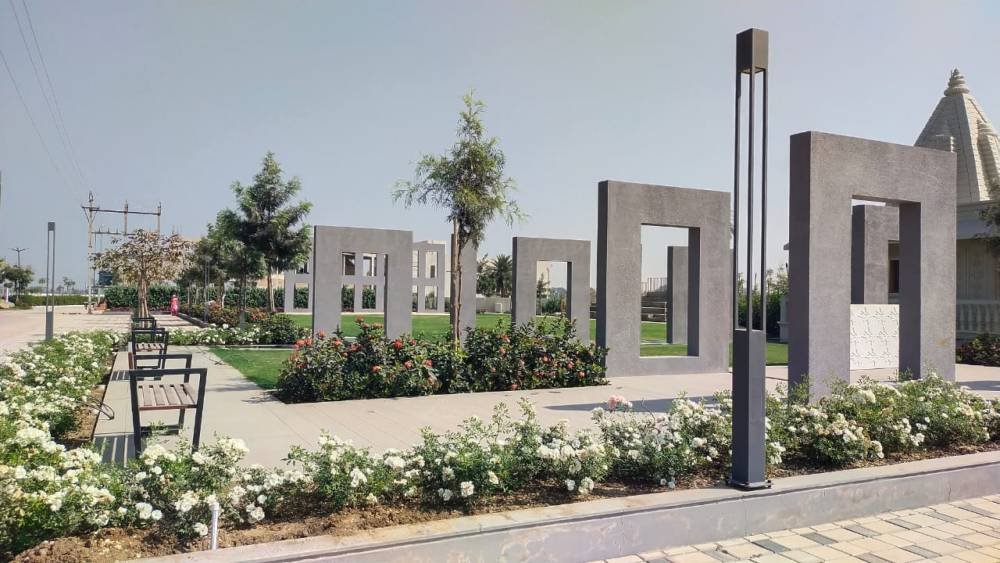Buying Property in Raipur vs. Other Cities in Chhattisgarh: A Comparative Guide

Buying a property is a significant investment, whether for personal use or as an investment. In Chhattisgarh, as in any other part of India, the legal and procedural aspects of property transactions can be complex. To ensure a smooth and secure purchase, buyers must verify various essential documents before finalizing the deal. This guide provides a comprehensive checklist of the necessary documents and their importance in the property-buying process.
1. Title Deed (Ownership Document)
The title deed is the most crucial document to verify when buying a property. It confirms the ownership and ensures that the seller has the legal right to sell the property. Buyers should:
-
Verify that the title deed is in the name of the seller.
-
Ensure that the property is free from any encumbrances or legal disputes.
-
Check for any past transactions related to the property to confirm a clear ownership history.
2. Sale Deed
The sale deed is the primary legal document that records the transfer of property ownership from the seller to the buyer. It is essential to:
-
Ensure the sale deed is drafted on stamp paper of the requisite value as per the Chhattisgarh Stamp Act.
-
Get the document registered at the local Sub-Registrar's Office.
-
Verify the terms and conditions mentioned in the sale deed.
3. Encumbrance Certificate
The encumbrance certificate (EC) provides details of any financial or legal liabilities associated with the property. It is issued by the Sub-Registrar’s Office and confirms that the property is free from mortgages, pending loans, or legal claims.
-
A “Nil” encumbrance certificate means there are no claims against the property.
-
Obtain an EC for at least the past 15–30 years to ensure no hidden liabilities.
4. Khata Certificate & Extract
The Khata certificate is an essential document that establishes the property’s identity in government records. It is required for:
-
Applying for home loans.
-
Paying property taxes.
-
Ensuring the property is legally constructed as per municipal regulations.
The Khata extract provides details about the property, including location, size, and ownership details. It is issued by the local municipality or panchayat office.
5. Property Tax Receipts
Property tax receipts ensure that all previous dues have been paid by the seller. Buyers should:
-
Verify receipts for the past 5 years to avoid future liabilities.
-
Check the name on the receipt to ensure it matches the seller’s name.
-
Confirm that there are no pending disputes regarding unpaid taxes.
6. Mutation Register Extract
A mutation register extract helps confirm that the property ownership has been legally updated in municipal records. It is necessary for:
-
Selling the property in the future.
-
Availing utility connections like water and electricity.
Buyers should request an updated mutation extract from the local municipality office.
7. Land Use Certificate (Zoning Certificate)
If you are buying land, verifying the land use certificate ensures that the property complies with local zoning laws. This document:
-
Confirms whether the land is classified as residential, commercial, agricultural, or industrial.
-
Prevents legal issues related to unauthorized land use.
-
Can be obtained from the Town Planning Authority.
8. Approved Building Plan & Layout
For buying an apartment or constructed house, verifying the building plan approval is crucial. This ensures:
-
The construction is legal and follows government-approved plans.
-
There are no deviations from the original sanctioned plan.
-
The property is safe for occupancy.
Buyers should check with the municipal corporation or development authority for building approvals.
9. Completion Certificate (CC) & Occupancy Certificate (OC)
If purchasing a newly constructed property, two critical documents are required:
-
Completion Certificate (CC): Confirms that the building complies with approved plans and is safe for occupation.
-
Occupancy Certificate (OC): Issued by the local municipality, it permits the buyer to legally occupy the property.
Properties without an OC may face legal issues and difficulties in obtaining essential services like electricity and water connections.
10. No Objection Certificates (NOCs)
A property should have No Objection Certificates (NOCs) from various authorities, including:
-
Environmental Clearance: For large residential projects.
-
Fire Safety Department: For high-rise buildings.
-
Water and Electricity Boards: Ensuring utilities are legally sanctioned.
-
RERA Approval: If applicable, for registered projects under the Real Estate Regulatory Authority (RERA).
11. RERA Registration Certificate
Under the RERA Act, all real estate projects must be registered with the state Real Estate Regulatory Authority. Buyers should:
-
Check the property’s RERA registration on the Chhattisgarh RERA website.
-
Verify the project’s legal status, approvals, and completion timeline.
-
Ensure transparency and accountability from developers.
12. Power of Attorney (If Applicable)
If the seller is not the original owner and is selling on behalf of someone else, a Power of Attorney (PoA) document must be verified. It ensures:
-
The person has the legal right to sell the property.
-
The PoA is registered and notarized.
-
There is no forgery or fraud in the transaction.
13. Loan Clearance Certificate (For Mortgaged Properties)
If the property was previously mortgaged, a loan clearance certificate ensures that the loan has been fully repaid and the lender has released their claim. Buyers should:
-
Obtain a No Dues Certificate from the bank.
-
Verify that the mortgage has been legally removed from the property records.
-
Check the encumbrance certificate for any remaining liens.
14. Sale Agreement
Before finalizing the purchase, a sale agreement is drafted between the buyer and seller. It includes:
-
The agreed purchase price.
-
Payment terms and conditions.
-
Date of possession and legal obligations.
-
Penalties in case of default by either party.
This document is legally binding and serves as proof of the transaction.
15. Identity & Address Proof of Buyer & Seller
Both parties must provide valid identity and address proof, such as:
-
Aadhaar Card
-
PAN Card (for tax purposes)
-
Passport/Driving License (if applicable)
These documents are essential for registration and legal compliance.
Conclusion
Purchasing a property in Chhattisgarh requires careful verification of multiple legal documents to avoid disputes, fraud, or financial losses. Whether buying from a builder or an individual seller, ensuring that all necessary paperwork is in place is critical for a hassle-free transaction.
At Silver Oak Raipur, we prioritize transparency and legal compliance, ensuring that all our projects are RERA-registered and come with clear documentation. Our expert team is always available to assist buyers in making informed decisions, securing their investment with confidence.
If you're planning to buy property in Chhattisgarh, feel free to reach out to Silver Oak Raipur for guidance on legal documentation and premium real estate options. Your dream home is just a step away!
Latest Posts
-
1
-
2
-
3
-
4
-
5








